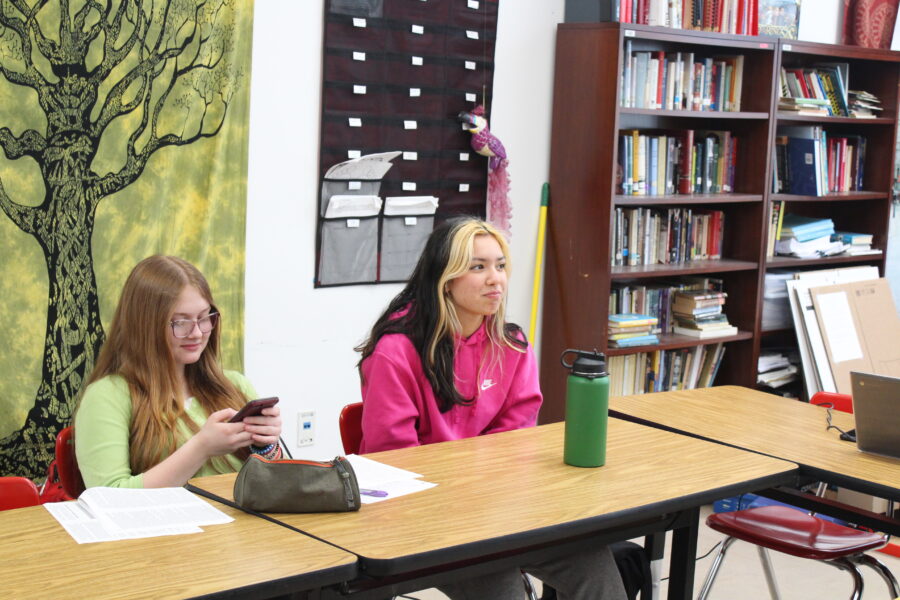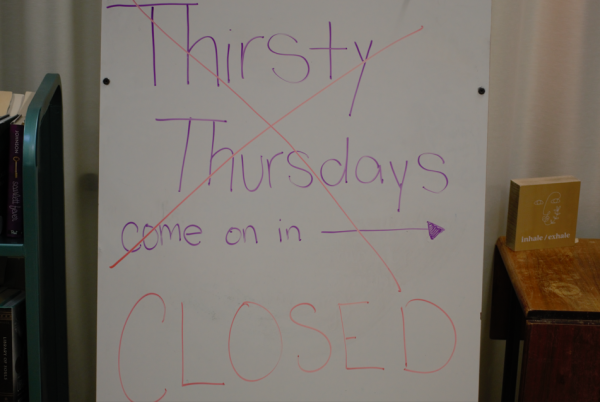The Age of Technological Distraction
Students have different views on the acceptability of phones in class.
Technology has evolved tremendously over a few decades. From pagers to today’s current smartphones, people now hold a wealth of knowledge in the palm of their hands. Even so, the question of whether smartphone technology benefits or harms the younger generation is becoming more and more prevalent. According to a 2023 survey from Gitnux, 95 percent of students bring their phones to class everyday. The rise of students bringing phones to class has led to the need for teachers and schools to implement restrictions on the usage of phones during school hours.
Biology teacher Howard Hoover explains his classroom phone policy saying, “It’s fluid. I initially started on no phones, [and] it’s working with most of my classes. I just tell them to put their phones away and they do. In the future I’m going to completely change it to no phones, I don’t like using phone pockets, so I’m going to have them put their phones in their backpacks and put the backpacks on the other side of the room.”
When it comes to consequences for phone usage during class, Hoover says, “First they will get a verbal warning, then they’ll sit in the hallway for some time, and if it keeps going I’ll send them to an administrator.” Hoover explains his opinion on whether phones benefit his students or distract them, “It depends on the student. A lot of kids can handle being on their phone and working, and some kids can’t.” Hoover adds, “I’m worried about phone addiction and I see it as a distraction.”
Some students think that individual teachers’ phone policies are smart and effective. Senior Daisy Lucas states, “I agree with the teachers setting their own policy within their classroom because students take advantage of the liberties of having their phones on them and they don’t complete their work… Although it’s an issue for some, many stay focused.”
Lucas acknowledges that even she finds herself tempted to look at her phone during class, saying, “Sometimes my phone can be a distraction because I get bored during class. But most of the time I try to stay engaged.”

Some students are more than willing to admit that their phone is a distraction to them. Senior Citlaly Gutierrez explains, “I’m very easily distracted, so I’m tempted when I hear my notification go off.”
On the other hand, phones can be a useful tool to complete assignments. “For certain classes it’s convenient; for example, in Government, our teacher will recommend websites to use to research information and it’s easily accessible instead of pulling out our Chromebooks,” said Lucas.
Lucas explains her concerns with not having her phone accessible during family emergencies. “I think students should have their phones on them if they can be trusted. I’ve been in situations where my family members have texted me about something important like ‘someones in the hospital.’ I want to be able to have my phone nearby and know about those things immediately instead of going home and finding out later.”
Latin teacher Kathleen Fowler describes her phone policy, saying, “For Latin I they put their phones in pockets at the front of the classroom at the beginning of class. Latin II and Latin III I have them keep it in their backpacks unless they’re actively using them in class.” In her class, Fowler notes both the beneficial and non-beneficial ways students use their devices. Fowler says, “It depends on the student. I’ve seen students use their phones as timers and calendars and for some of them it is beneficial, but for others they watch Netflix and then it’s time for them to put it away.”
Fowler sees phones as distractions to students, saying,“It’s about self regulation of the individual rather than the phone itself. The phone is the crutch; I think if it wasn’t the phone it would be something else that would be distracting. It can be a disruption to their learning especially if we’re trying to pay attention to something and they should be focused on taking notes or working on a problem.”
Thanks for reading The Falconer. We're happy to provide you with award-winning student journalism since 1963, free from bias, conflicts of interest, and paywalls. We're able to continue with the generous support of our local community. If you're able, please consider making a donation. Any amount is incredibly helpful and allows us to pursue new and exciting opportunities.









